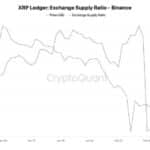By Martin Wolf
Published: January 6 2009 19:27
Financial Times
What makes rescue so difficult is the force that drove the crisis: the interplay between persistent external and internal imbalances in the US and the rest of the world. The US and a number of other chronic deficit countries have, at present, structurally deficient capacity to produce tradable goods and services. The rest of the world or, more precisely, a limited number of big surplus countries – particularly China – have the opposite. So demand consistently leaks from the deficit countries to surplus ones.
In times of buoyant demand, this is no problem. In times of collapsing private spending, as now, it is a huge one. It means that US rescue efforts need to be big enough not only to raise demand for US output but also to raise demand for the surplus output of much of the rest of the world. This was a burden that crisis-hit Japan did not have to bear.
What has happened to US private spending follows from the collapse in borrowing: between the third quarter of 2007 and the third quarter of 2008 net lending to the US private sector fell by about 13 per cent of gross domestic product – by far the steepest fall in the history of the series. With borrowing out of the picture, private net saving – the difference between income and expenditure – is likely to remain positive for years, as households pay down debt, willingly or not.
Given the persistent structural current account deficit, how large does the fiscal deficit need to be to balance the economy at something close to full employment? Assuming, for the moment, that the private sector runs a financial surplus of 6 per cent of GDP and the structural current account deficit is 4 per cent of GDP, the fiscal deficit must be 10 per cent of GDP, indefinitely.
And to get to this point the fiscal boost must be huge. A discretionary boost of $760bn (€570bn, £520bn) or 5.3 per cent of GDP is not enough. The authors argue that “even with the application of almost unbelievably large fiscal stimuli, output will not increase enough to prevent unemployment from continuing to rise through the next two years”.
Now think what will happen if, after two or more years of monstrous fiscal deficits, the US is still mired in unemployment and slow growth. People will ask why the country is exporting so much of its demand to sustain jobs abroad. They will want their demand back.
Wednesday, January 7, 2009
Subscribe to:
Post Comments (Atom)



No comments:
Post a Comment